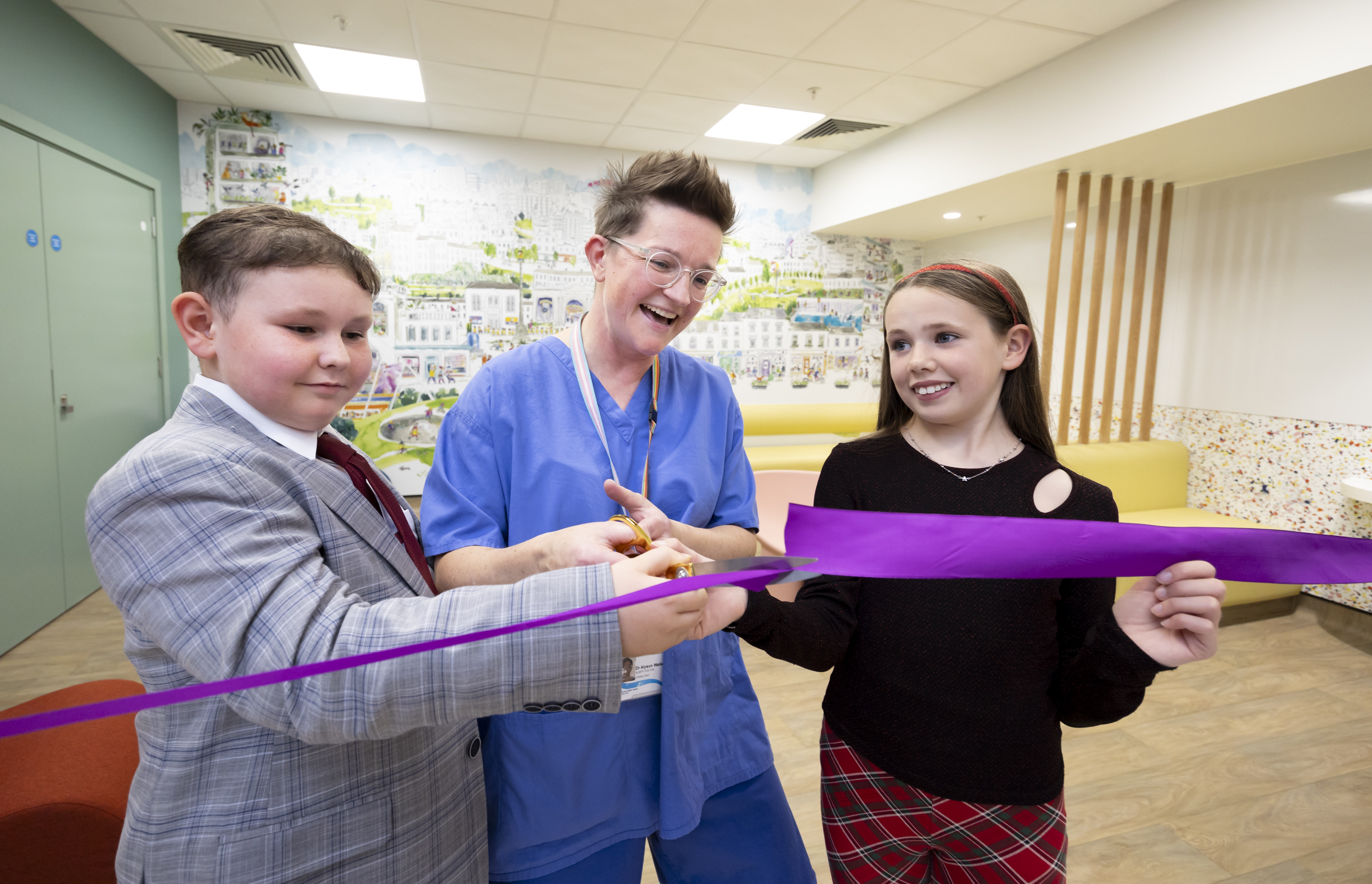The Sleepy Doctor's Dream
In 2018, Dr. Alyson Walker, Paediatric Cardiac Anaesthetist, NHS Greater Glasgow and Clyde, embarked on a transformative journey destined to reshape the landscape of paediatric surgery at the Royal Hospital for Children, Glasgow, touching the lives of over 10,000 children each year.
Today heralds a new standard for paediatric operating theatres as the first phase of the Theatre Improvement Initiative was officially opened, with Dr Walker helped by patients Riley, 9, and Scarlett, 11.
Guided by Dr. Walker's vision and in partnership with Glasgow Children’s Hospital Charity, the million-pound initiative aims to create a more compassionate and empathetic environment for patients, their families, and the dedicated staff who care for them.
The Theatre Improvement Initiative marks a significant milestone in advancing the commitment to patient-centred care from NHS Greater Glasgow and Clyde and the Royal Hospital for Children, Glasgow. The initiative is poised to influence the design of children’s operating theatres worldwide.
 Creating empathy and powerful connections in Theatres
Creating empathy and powerful connections in Theatres
The first phase saw the renovation of the reception area and creation of the ‘Wee Room’, a peaceful sanctuary for parents and carers to “take a moment” in. The centrepiece of the flagship project is an ambitious art installation by illustrators Laura Darling and Mark Faulkner.
Stories from patients, families, communities, and staff were collected and brought to life in artwork that will flow throughout the entire Theatre Department. The reception space features an urban scene that transitions into a countryside setting along the corridors, mirroring the journey from urban business to rural calmness.
Within each anaesthetic room, a family of 11 animals, chosen based on children’s feedback, is featured in the artwork. As children progress through the Theatres Department, they will be able to spot these animals, creating a comforting and familiar connection.
In the ‘Wee Room’, illustrator Mark Faulkner’s artwork pays homage to parental care over the generations, the legacy of Yorkhill and the connection between hospitals past and present.
The realisation of a five-year vision
Explaining the motivation behind her vision, Dr Walker said: “For children, parents, and caregivers, visiting the operating theatre can be a daunting experience, whether it's for a dental procedure or brain surgery. The stories that children and families share about their experiences in the theatre last a lifetime, so we want them to be positive.
“Whilst hospital design has improved greatly in recent decades, it is still the case that there are pockets of clinical areas that patients still find intimidating. I have travelled to several centres of excellence around the world and found this to be the case, even in relatively new buildings. Our children’s operating theatres are one such place.
“Our Theatre Improvement Project set out to change this narrative. We wanted to transform our theatre environment into one filled with empathy so that children, their families and indeed staff will feel calmer and more welcomed. The new environment contains welcome distractions and moments of joy for those visiting. It is important on both an emotional and clinical level. A more empathic environment will lead to less anxiety, greater satisfaction, less emergence delirium, less post-op nausea and vomiting and less pain relief requirements. I am deeply grateful for the support of the public, businesses and Glasgow Children’s Hospital Charity for making this vision become a reality.”
A project brought to life with fundraising
CEO Kirsten Watson describes why Glasgow Children’s Hospital Charity committed more than £500,000 in funding for the ambitious project:
“We believe that the Royal Hospital for Children, Glasgow is one of the best hospitals of the world. Today marks another reason why.
“The operating theatres are a place where levels of anxiety and fear can be at their peak for families. They are often places of vulnerability, where full trust must be handed over to the clinical teams.
“We've invested in physical equipment for the Theatres Department in the past, but now we're addressing the emotional well-being of our children and families too. We are indebted to the individuals, community supporters, businesses and trusts from around the world whose generous donations have made this historic project possible.”
Dr Walker herself has raised tens of thousands for the project, including a ‘dawn ‘til dusk’ walk on the longest day of the year.